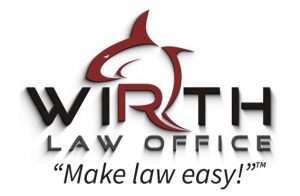 Facing a criminal prosecution is one of the most frightening events in a person’s life. It is made all the worse when a person is convicted. We want to think that only the guilty are convicted, but that just isn’t the case. Mistakes happen all the time in the criminal justice system. To deal with mistakes at the trial court level, Oklahoma has a built-in system of appeals. A criminal appeals attorney in Okmulgee often specializes in this particular aspect of criminal law, helping spot and correct mistakes made in a criminal trial. Here is what you may want to know about the criminal appellate process in Okmulgee.
Facing a criminal prosecution is one of the most frightening events in a person’s life. It is made all the worse when a person is convicted. We want to think that only the guilty are convicted, but that just isn’t the case. Mistakes happen all the time in the criminal justice system. To deal with mistakes at the trial court level, Oklahoma has a built-in system of appeals. A criminal appeals attorney in Okmulgee often specializes in this particular aspect of criminal law, helping spot and correct mistakes made in a criminal trial. Here is what you may want to know about the criminal appellate process in Okmulgee.
A Criminal Appeal Is A Matter Of Right
All people who have been convicted of a crime are afforded the right to appeal that conviction. This is true of all state and federal courts in Oklahoma.
State courts and federal courts each have their own rules, procedures, and timelines for appeals. Some appeals must be filed fairly quickly after the conviction.
Therefore, if you are thinking of filing an appeal, it helps to get an experienced criminal appeals attorney in Okmulgee on board quickly. It also helps to have fresh eyes review the trial transcript. That usually means hiring a different attorney than the one who handled your criminal trial.
Different Types of Criminal Appeals in Oklahoma
In Oklahoma state court, there are two different types of appeals or post-conviction motions that can be brought. Each addresses a particular kind of wrong, and each has limitations.
The direct appeal is the kind of appeal that most people think about when they think of a criminal appeal. This appeal happens right after a trial. Its purpose is to correct a substantial error that was made in the criminal trial. Only certain types of grounds are acceptable for a direct appeal.
A post-conviction appeal may also be filed. This type of appeal is somewhat limited in its scope. You can bring this type of appeal when:
- the conviction or the sentence was in violation of the state or federal Constitution;
- the court that convicted you was without jurisdiction to impose sentence;
- the sentence exceeds the maximum authorized by law;
- there are material facts that were not presented or heard in the trial and that requires the vacation of the conviction or sentence in the interest of justice;
- the defendant remains incarcerated once their sentence, probation, or parole has expired, their conditional release has been unlawfully revoked, or they are otherwise unlawfully held in custody or other restraint; or
- the conviction or sentence is subject to collateral attack upon any ground of alleged error available under any common law, statutory, or other writ, motion, petition, proceeding, or remedy.
Okla. Stat. tit. 22 § 1080
There are also federal appeals that can be filed. These require federal grounds as the basis for the appeal. It is possible for an appeal to lose at the state level and to win at the federal level.
Grounds For Appeal In State Court
Any error made at the trial court error must be a significant one that alters the case. It must be a “prejudicial” error. If it is a ”harmless error,” it may not be used as grounds for appeal. Here are some typical examples of grounds that may be used for appeal.
Ineffective Assistance Of Counsel: Sometimes your trial attorney gets it wrong. When your attorney’s mistake deprives you of your right to a fair trial, that constitutes a ground for appeal.
Improper Admission Or Exclusion Of Evidence: This is a common ground for appeal. That means that the judge made a mistake and either allowed evidence or improperly excluded evidence.
Insufficient Evidence: This is a jury mistake. That means that when you look at the entirety of the evidence presented against a defendant, it is insufficient to meet the burden of proof — yet the jury convicted the defendant anyway. This is also a common ground for appeal.
Juror Misconduct: Juror misconduct usually takes the form of doing such things as being intoxicated during the trial, talking to other people about the case while serving as a juror, obtaining information regarding the case from any outside source, lying or omitting information during jury selection, or accepting a bribe.
Prosecutorial Misconduct: This usually involves either improperly omitting evidence relevant to a defendant’s innocence or purposely introducing contrived or tainted evidence that unfairly or erroneously points to a defendant’s guilt.
New Evidence: Appeals based on new evidence often involve DNA evidence that was either unavailable or improperly excluded.
There are other types of relief that may be available to you post-conviction. All matters and routes of relief on appeal should be discussed with your Okmulgee attorney as part of a comprehensive appeals plan.
Low-cost Consultation With An Okmulgee Lawyer
Call 918-756-9600 now for a initial consultation with a qualified Okmulgee attorney at Wirth Law Office – Okmulgee.
Or, enter your legal question or concern in the firm at the top right of this page, and one of our attorneys will email or call you.







